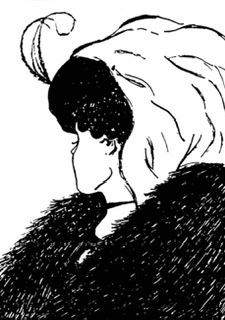Speaking of dual fulfillments to prophecy, this would be cool to see:
Betelgeuse is acting strange, and astronomers are buzzing
(It would fit nicely with Luke 21:25, as mentioned before.)
I have no trouble with preterism and the imagery it presumes, as long as it allows for the possibility of dual fulfillments to some prophecy and dual noncontradictory meanings to some other scripture, from Genesis 1 through Revelation, not unlike the classic optical illusion of two women – both are true and nonconflicting:

I suggest that the Bible is bigger than we know, penned (metaphorically speaking ![]() ) by the ultimate Wordsmith and the Artist of artists.
) by the ultimate Wordsmith and the Artist of artists.